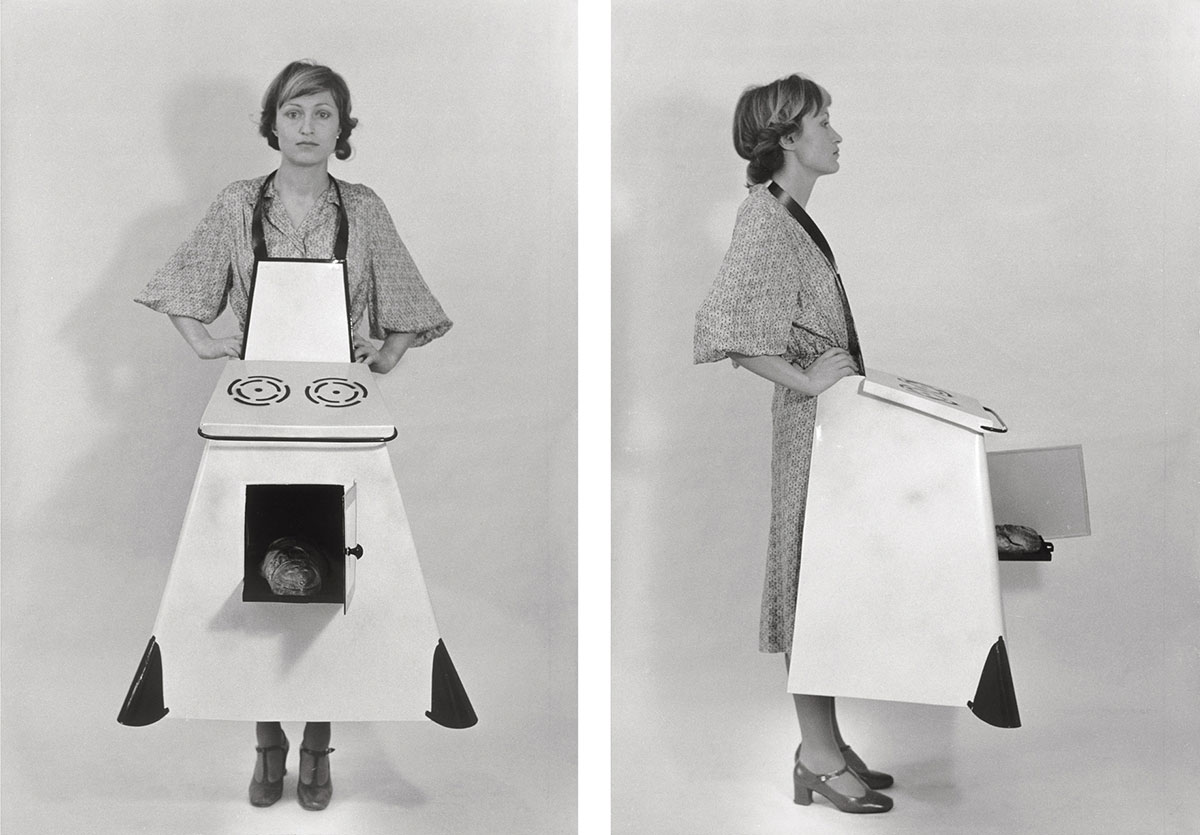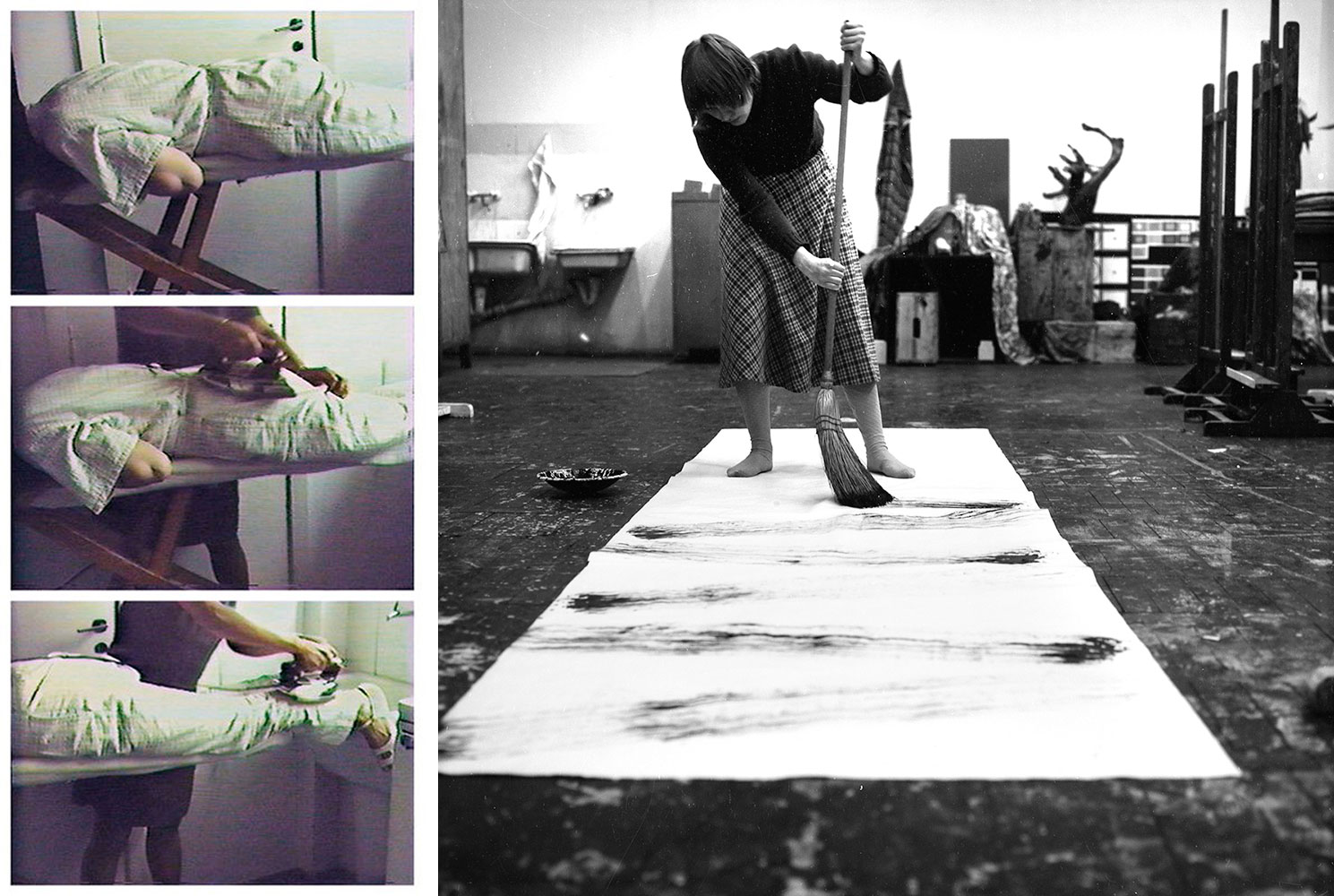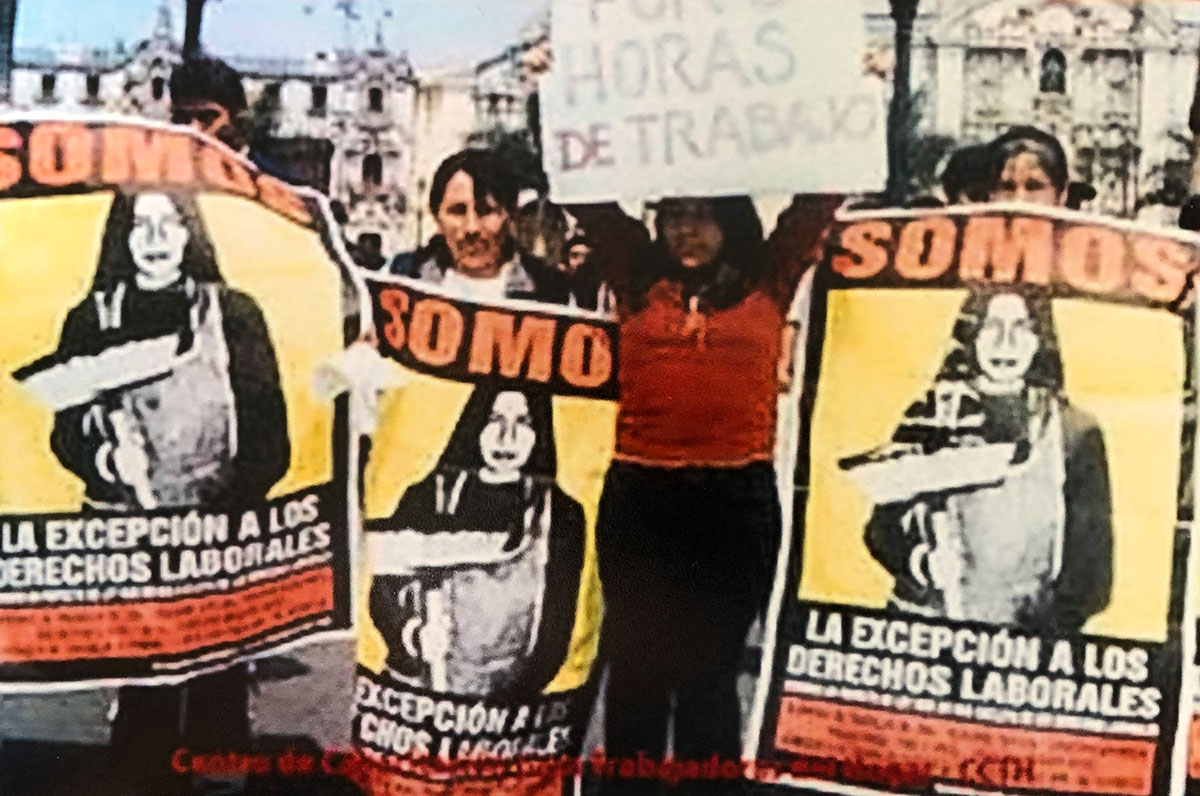PRESENTATION: Cooking Cleaning Caring-Care Work in the Arts since 1960
 The Josef Albers Museum Quadrat, in cooperation with researchers from the Institute of Art History of the Ruhr University Bochum, is presenting the exhibition “Cooking Cleaning Caring: Care Work in the Arts since 1960”, videos, photographs, paintings, sculptures, installations and archival materials are presented in eight rooms by 40 international artists.
The Josef Albers Museum Quadrat, in cooperation with researchers from the Institute of Art History of the Ruhr University Bochum, is presenting the exhibition “Cooking Cleaning Caring: Care Work in the Arts since 1960”, videos, photographs, paintings, sculptures, installations and archival materials are presented in eight rooms by 40 international artists.
By Efi Michalarou
Photo: Josef Albers Museum Archive
In the course of the COVID-19 pandemic, the debate about care work has once again brought public attention. Their spectrum ranges from soccer activities in private spaces – home and nursing work – towards care professions in clinics, nursing homes and other institutions. Everywhere there, mainly by women and often under precarious conditions, mentally and physically demanding work is done around the clock, which, however, is not considered productive within a neoliberal, capitalist growth logic and is often not recognised as labour. Poorly or not paid, she experiences a significant devaluation. For more than 60 years, artists have been critically involved in gender politics and the social implications and consequences of care work. In connection with the Second Women’s Movement of the 1970s, the observation of everyday realities of life and their own experiences in the dual role as mothers and artists, they develop artistic works that articulate the demands for a fair evaluation and distribution of work. In their works, the artists point to the structural discrimination of women through care work and at the same time emphasise the social relevance of care work and the need for a just reorganization. In this context, Mierle Laderman Ukeles’ Maintenance Art Manifesto from 1969 is considered a key work, in which the American conceptual artist entitled “My working will be the work” integrates her own motherhood and the associated activities into her artistic work. It places the female connoted, care and maintaining to the dominant, male-white understanding of work between innovation and growth and emphasizes the precarious situation of those who do care work. The exhibition represents this early generation of female artists, to which, alongside Mierle Laderman Ukeles and others. Chantal Akerman, Anna Daučíková, Sandra Eleta, VALIE EXPORT, Lourdes Grobet, Krystyna Gryczełowska, Birgit Jürgenssen, Letícia Parente, Martha Rosler. At the same time, they work to make custody work visible as unpaid work, using comparable artistic media and techniques. The juxtaposition of their works shows that they show numerous parallels, although they have emerged in different political and social contexts. More recent work, for example, by Natalia Iguiñiz or Jinran Ha negotiate paid care work – home care and care work in the hospital – in relation to questions of migration and therefore decidedly as a global topic, which is still of high relevance: race, class and gender still have an effect on the evaluation and distribution of work, especially care work, and vice versa. The fact that the art-historical and artistic treatment of care work takes place in Bochum and Bottrop is meaningful, as the Ruhr area is a region that is characterized by work and migration like hardly another. Here, women took over and take over domestic care work, practice care work as contract work and often complete double layers between the family environment, services and industry. The works of Renate Eisenegger, who was born in Gelsenkirchen in 1949, bear witness to the crisis-prone of this situation. Also located in the Ruhr area are the feminist archive fromZeiten e.V. in Bochum and the Courage Women’s Centre in Bottrop. They provide rich materials – newspaper articles, films, posters, publications – on the subject; here is also the film Frauenleben (1980) by Christa Donner and Gabriele Voss, who plays in the vicinity of the Zeche Bottrop-Ebel and ties the topic directly locally. One of the central tasks of the institution museum is preserving and maintaining, but the topic of care work has only recently been the subject of exhibitions and museum formats. Here, too, the division of ‘male’ and ‘female’ work is shown: While the former, e.g. in industrial museums, is discussed in detail, the latter is hardly represented. For a few years, concern work has been intensified in international art institutions, taking into account various aspects, such as motherhood or illness. Since 2022, there has been the DFG research project Putzen, Kochen, Sorgen at Ruhr-Universität Bochum (Chair of Cultural and Gender History). Care work in art in Western and Eastern Europe, the USA and Latin America since 1960, in which female scientists specialising in work and gender research systematically deal with the topic for the first time. The exhibition, which was created together with them for Bottrop, thus ties in with a young, relevant, international research field and aims to provide a historically anchored overview of the artistic engagement with care work within different cultural spaces.
Works by: Chantal Akerman, Mirella Bentivoglio, Tomaso Binga, Helen Chadwick, Cine Mujer, Anna Daučíková, Renate Eisenegger, Sandra Eleta, VALIE EXPORT, Milli Gandini, Eulàlia Grau, Lourdes Grobet, Krystyna Gryczełowska, Hackney Flashers, Mako Idemitsu, Natalia Iguiñiz, Ana Victoria Jiménez, Jinran Ha, Birgit Jürgenssen, Anna Kutera, Mierle Laderman Ukeles, Lea Lublin, Ingeborg Lüscher, Karin Mack, Maura, Carmen, Gunvor Nelson & Dorothy Wiley, Letícia Parente, Maria Pinińska-Bereś, Polvo de Gallina Negra, Margaret Raspé, Ulrike Rosenbach, Martha Rosler, Betye Saar, Anna Schölß, Marcia Schvartz, Mariuccia Secol, See Red Women’s Workshop, Mary Sibande, Annegret Soltau, Gabriele Stötzer, Rosemarie Trockel, Gabriele Voss & Christa Donner, Zsuzsi Ujj
Photo: Rosemarie Trockel, Trauma, 1992, Iron, enameled, 4 hotplates, private collection, © Rosemarie Trockel and VG Bild-Kunst, Bonn 2023 / Photo: Timo Ohler
Info: Josef Albers Museum, Anni-Albers-Platz 1, Bottrop, Germany, Duration: 22/10/2023-3/3/2024, Days & Hours: Tue-Sat 11:00-17:00, Sun 10:00-17:00, https://quadrat.bottrop.de/



Right: Anna Kutera, Feminist Painting, 1973/2022 │ Photo series, 8 parts, analog photo print, 18 x 18 cm, © Anna Kutera, VERBUND COLLECTION, Vienna


Right: Natalia Iguiñiz, La Otra (The Other), 2001 │ Photo series, 13 parts, photochrome print, © Natalia Iguiñiz
